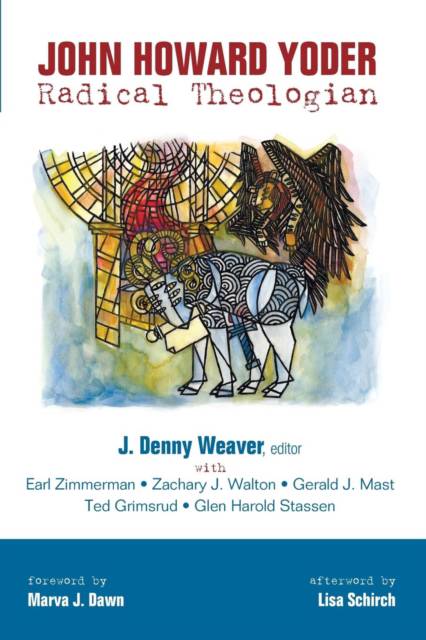
- Afhalen na 1 uur in een winkel met voorraad
- Gratis thuislevering in België vanaf € 30
- Ruim aanbod met 7 miljoen producten
- Afhalen na 1 uur in een winkel met voorraad
- Gratis thuislevering in België vanaf € 30
- Ruim aanbod met 7 miljoen producten
Zoeken
John Howard Yoder
Radical Theologian
Earl Zimmerman, Zachary J Walton, Gerald J Mast, Ted Grimsrud
Paperback | Engels
€ 72,45
+ 144 punten
Uitvoering
Omschrijving
This book argues that for John Howard Yoder both theology (in particular Christology) and ethics are expressions of the meaning of the narrative of Jesus. All such statements are relative to a particular context, which means that theology and ethics are always subject to reaching back to the narrative in order to restate the meaning in new and ever-changing contexts. This methodology is visible in Yoder's Preface to Theology, which has been little used in most treatments of Yoder's thought. Yoder has been characterized as standing on Nicene orthodoxy, criticized for rejecting Nicene orthodoxy, called heterodox, and designated a postmodern thinker to be interpreted in terms of other such thinkers. None of these characterizations adequately locates the basis of his methodology in the narrative of Jesus. Thus John Howard Yoder: Radical Theologian aims to go beyond or to supersede existing treatments with its demonstration that Yoder is a radical theologian in the historical meaning of radical--that is, as one who returns to the root. For Christian faith, this root is Jesus Christ. Parts II and III of the book explore the sources of Yoder's approach, and its application in several contemporary contexts.
Specificaties
Betrokkenen
- Auteur(s):
- Uitgeverij:
Inhoud
- Aantal bladzijden:
- 438
- Taal:
- Engels
Eigenschappen
- Productcode (EAN):
- 9781625645852
- Verschijningsdatum:
- 11/11/2014
- Uitvoering:
- Paperback
- Formaat:
- Trade paperback (VS)
- Afmetingen:
- 150 mm x 226 mm
- Gewicht:
- 557 g

Alleen bij Standaard Boekhandel
+ 144 punten op je klantenkaart van Standaard Boekhandel
Beoordelingen
We publiceren alleen reviews die voldoen aan de voorwaarden voor reviews. Bekijk onze voorwaarden voor reviews.











